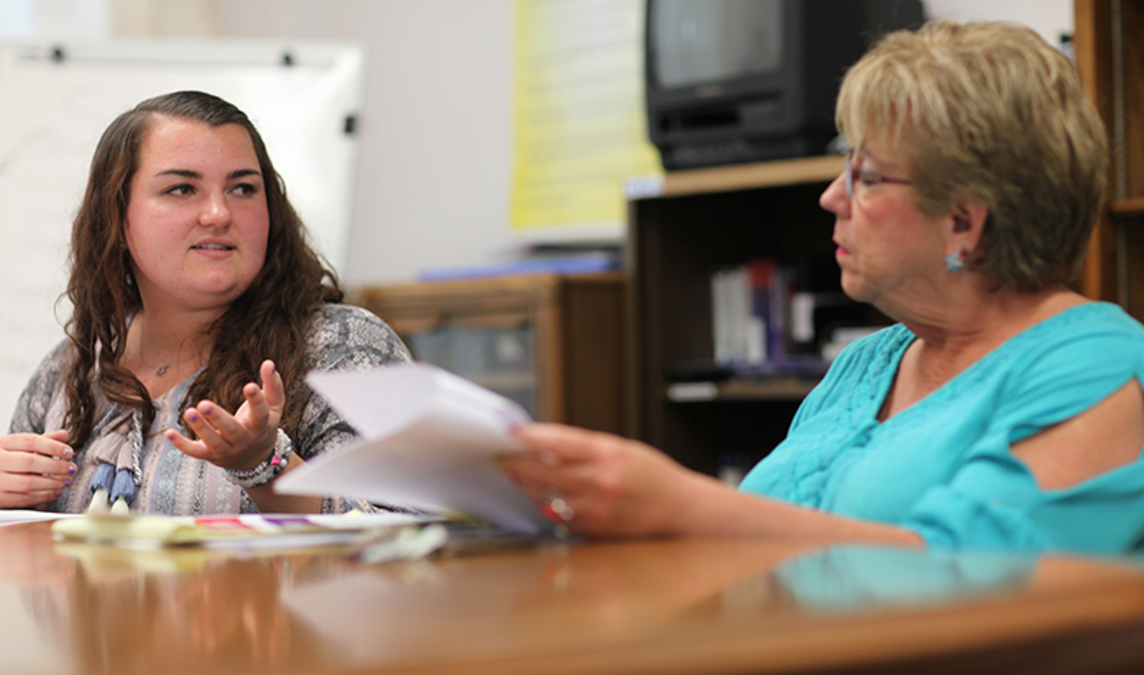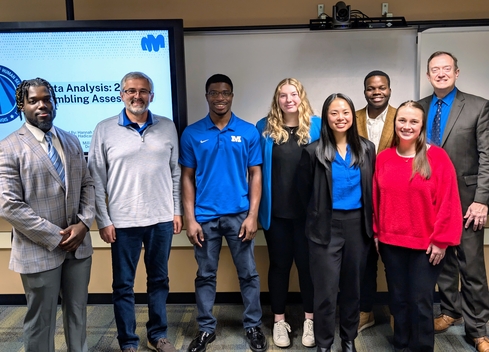Millikin students work with local organization to develop community awareness campaign
Developing persuasive messages to change people's behavior can be a challenging task. It can also attract an audience if used effectively.
This past spring semester, a group of Millikin University students learned more about this theory by planning, designing and implementing a pro-social persuasion campaign. The project was part of a course titled Persuasion, Campaigns and Performance taught by Dr. Amy Delaney, assistant professor of communication at Millikin. The course blends theories of persuasion while providing students time to work on the practicals.
The six Millikin students in the class chose to partner with Dove, Inc. on developing a domestic violence awareness campaign. Dove is an organization that coordinates efforts to address unmet human needs and social injustices in Decatur, Ill.
The students spent close to nine weeks digging into theory and research focusing on persuasion and behavior change. During the second half of the semester, the students worked with Dove to develop a theory-driven campaign to increase community awareness about domestic violence and increase referrals to Dove's services.
"We dig into the theory for the front end of the semester and then dedicate all of our time and energy to apply that knowledge for the last half of the semester," Delaney said. "Dove was such an enthusiastic partner on the project, and the students were really engaged. One thing we learned early in the collaboration is that Dove had never had a coordinated public awareness campaign."
The students discussed the issue of domestic violence on the first day of class and narrowed their decision down to Dove, Inc. as a potential community partner. For a campaign to be successful, it needs to have formative research and it needs to be theory-driven, so the students asked Dove what type of audiences they were trying to reach and what they wanted the audiences to learn.
"We were trying to figure out a message that we could shape and adapt for each audience that Dove wanted to reach," said recent graduate Katherine Meyer, a theatre major from Oswego, Ill. "They wanted to get more referrals – so we focused on reaching out to police departments, hospitals and churches as sources of information because they are the primary stops for someone to report domestic violence."
In addition to increasing referrals, Dove wanted to achieve more broad awareness about domestic violence. The overarching message of the campaign was "Do More."
"The notion of 'Do More' is that we are not just trying to raise awareness, we are trying to get our target audiences more involved in Dove and giving more to help victims of domestic violence," said recent graduate McKinley Paratore, a digital media marketing major from Oswego.
With "Do More" being the core message, other aspects of the campaign included specific smaller messages geared to different categories. For instance, in healthcare, the students crafted a phrase called "Do More, Know the Signs" based on research the students conducted that showed domestic violence victims see healthcare professionals more frequently than those who are not in domestic violence situations.




